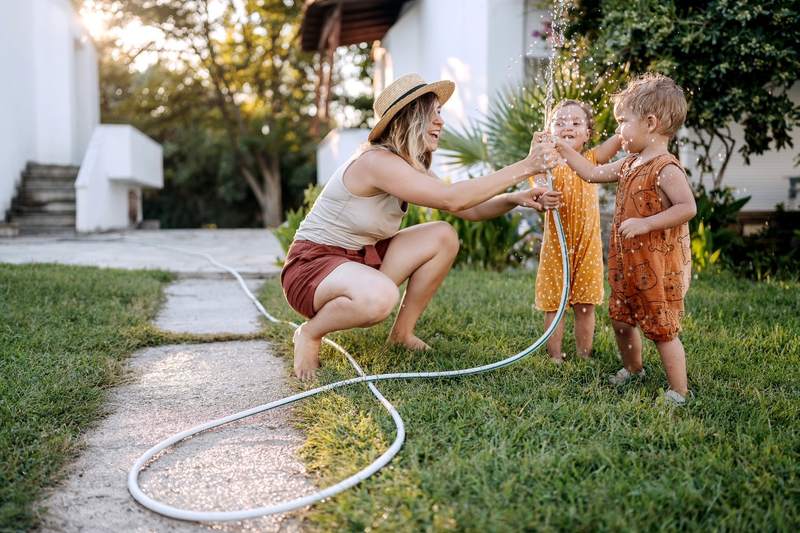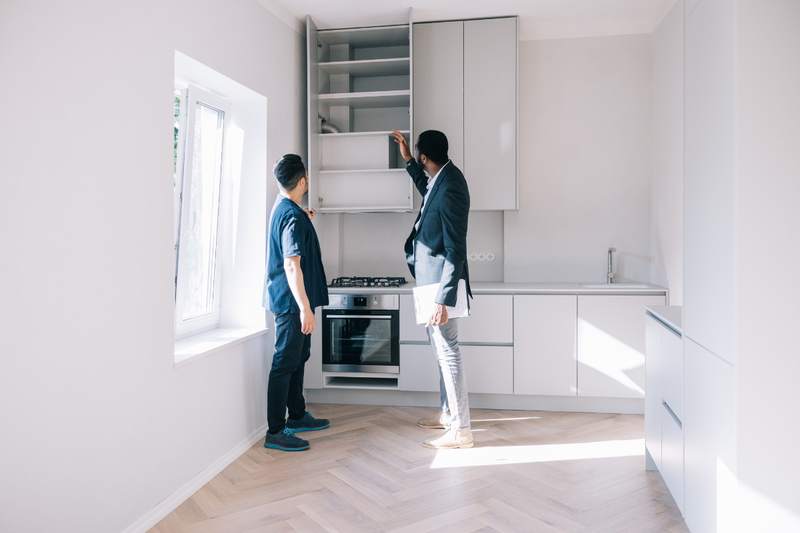Making an offer when buying a home is a make-or-break moment for first-time homebuyers. If the offer is accepted, you’re on your way to owning a home. If not, it’s back to square one, so it’s important to many buyers that they make their offers as attractive to sellers as possible.
One way that many buyers bolster their offer is to include earnest money. Earnest money shows sellers you’re serious enough about your offer to put down some cash upfront.
But offering earnest money isn’t without risk. Read on to learn how earnest money can help you make the best offer possible:
- What Is Earnest Money?
- Why Should You Pay Earnest Money?
- How Much Earnest Money Should You Pay?
- How To Make an Earnest Money Deposit
- Can You Lose Earnest Money?
- How To Protect Your Earnest Money Deposit
- Earnest Money FAQ
- The Bottom Line on Earnest Money
What Is Earnest Money?
Earnest money is a cash deposit that the buyer pays the seller when their offer on a house is accepted. It serves as a “good faith deposit” that demonstrates the buyer’s commitment to the purchase, and protects the seller in case the buyer cancels the deal.
Earnest money usually is around 1% to 3% of the sale price, and typically is held in an escrow account until closing. If the sale is successful, the earnest money is applied to the buyer’s down payment or closing costs.
But if the buyer backs out of buying a house unexpectedly, they forfeit their earnest money. The seller keeps the earnest money as compensation for their time, and the expense of relisting it and soliciting new offers.
The sales agreement between buyers and sellers often has contingencies that must be met for the sale to go through. If the sale is canceled because one of the contingencies hasn’t been met, the seller usually refunds the earnest money.
Down payment vs. earnest money
Many first-time homebuyers confuse the down payment with earnest money, but there’s a difference.
The down payment is the portion of the sale price paid in cash, with the rest of the purchase getting funded by a mortgage. Earnest money is a deposit designed to show the seller that the buyer is committed to buying the home.
Why Should You Pay Earnest Money?
Paying earnest money makes your offer on a home stand out. It shows that you’re serious about buying, and ready and able to complete the transaction.
Failing to offer earnest money could prompt the seller to choose a different offer that is backed by earnest money, because it guarantees them some cash even if the sale falls through.
Is earnest money required?
Earnest money isn’t required to buy a home, but sellers may refuse to consider offers without a deposit.
How earnest money can help your offer stand out
Earnest money assures the seller that they’ll be compensated for their time if the deal falls through.
Think about it from a seller’s perspective. If someone cancels a purchase at the last second, you’ve had your home off the market for a significant period of time and no deal to show for it. That can massively affect your plans, especially if you’ve already bought another home or found somewhere to live.
Earnest money shows sellers that the buyers have skin in the game, and that they’re not making offers on homes they can’t or won’t actually buy.
How Much Earnest Money Should You Pay?
The range typically is around 1% to 3% of the sale price, though you’re free to make an earnest money deposit of as much or as little as you’d like.
“The actual cost of the deposit depends on how competitive of a market you’re buying a house in,” says Richard Harless, a Realtor and owner of AZ Flat Fee, a Gilbert, Arizona-based real estate company. “It ranges from 1% all the way up to 10% or more.”
In a hot market, a bigger deposit can make your offer more attractive because it goes further in reducing the seller’s risk. In cooler markets, you can get away with smaller amounts and still be competitive.
If you really love a home, a larger earnest money deposit could increase the chances of your offer getting accepted.
“The higher your (earnest money deposit), the more serious of a buyer you come off as,” Harless says. “However, I seriously suggest that you give yourself a maximum of 3% because this is a smaller payment … but enough to ensure you don’t come across as unserious.”
Is earnest money refundable?
Earnest money is refundable, even if you back out of buying the home, as long as the right contingencies are spelled out in the sales contract.
If the seller backs out of the deal, the buyer can usually get their earnest money back.
If the buyer backs out, it’s more difficult to get their earnest money refunded. Typically, you’ll only get your money back if you’re backing out due to a contingency listed in your purchase offer.
These contingencies include:
- Home inspection contingency. If you included this contingency and the inspection uncovers major defects in the home, you can cancel the sale and get your deposit back. If you still want the home, you also can try negotiating a lower price or asking the seller to make repairs.
- Appraisal contingency. If the home appraises for less than the purchase price, this contingency lets you walk away from the sale with your deposit.
- Financing contingency. If you’re applying for a home loan, you can use this contingency to back out of the deal should you fail to get a mortgage.
- Contingency for selling an existing home. If you own a home and are planning to sell it to help fund your new purchase, this contingency lets you cancel the sale if you can’t find a buyer for your existing property.
How To Make an Earnest Money Deposit
Earnest money deposits are placed in an escrow account managed by a third party, and aren’t released until closing or one of the parties backs out of the transaction. That third party releases the funds based on the terms agreed upon by the buyer and seller.
That means you don’t just make a check out to the seller when you submit your offer. Typically, you make the payment to the escrow company by check or wire transfer. While the deadline can vary, earnest money usually is due within three days of a signed and accepted offer.
Once the seller accepts your offer, you can work with your real estate agent to pay the earnest money deposit.
Can You Lose Earnest Money?
If you back out of or cancel the deal for reasons not specified by the contingencies in your contract, you forfeit the deposit.
For example, if you waive the inspection contingency and then discover a major issue with the home, you won’t be able to cancel the sale and keep your earnest money.
You also can lose your earnest money if you fail to meet the closing timeline outlined in the transaction’s contract. For example, if you don’t finalize your mortgage application in a timely manner or extend the closing timeline past the agreed-upon date, you could lose your earnest money.
What happens to earnest money if a deal falls through?
If the deal falls through, who gets the earnest money depends on the terms of your contract.
If the buyer is the party backing out, they’ll need to have a reason to do so, or they’ll forfeit the deposit. For example, a buyer backing out due to a contingency included in the contract will likely get to keep their earnest money, while a buyer who simply changes their mind will lose it.
If the seller backs out, the buyer often gets the deposit back. However, if the seller stops the transaction due to a breach of contract, such as the buyer missing important deadlines, the seller may get to keep the deposit.
Always read the fine print of your offer and work with an agent and lawyer to understand the specifics of how your earnest money deposit will work.
How To Protect Your Earnest Money Deposit
Your earnest money can total thousands of dollars, so it’s important to protect it. A few things you can do to avoid losing the deposit include:
- Putting everything in writing. Write down everything about your earnest money deposit, such as where it will be held, how much you provided, and who gets the funds in different scenarios.
- Using contingencies. Waiving contingencies makes it more difficult for you to back out of a deal without losing the deposit.
- Placing the money in an escrow account. Don’t send the money directly to the seller. Use a reputable third party to secure the cash, and make sure to get a receipt.
- Getting preapproved. “Another way to protect your deposit is to get mortgage loan preapproval before making an offer on a home,” says Alex Capozzolo, a San Diego-based real estate agent and investor. “This shows the seller that you’re serious about buying the property and reduces the risk that you’ll back out of the deal due to financing issues.”
Earnest Money FAQ
Here are answers to some frequently asked questions about earnest money.
Earnest money can go toward either your down payment or closing costs. You should outline the specifics of where the earnest money will go in your purchase offer.
The amount of earnest money you offer can vary, but is usually about 1% to 3% of the home’s purchase price. Some buyers go as high as 10%.
Remember that the amount of earnest money you put down should reflect your commitment to buying a home and will influence the chances of your offer getting accepted.
Generally, earnest money is due within a few days of the seller accepting your offer to buy their home.
The Bottom Line on Earnest Money
Earnest money shows sellers that you’re committed to buying their home. If things go well, the deposit gets applied to your down payment or closing costs. By taking basic steps to protect your deposit, you can use earnest money to strengthen your homebuying offer with little risk.






